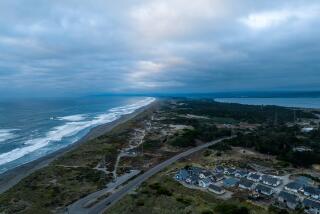The Pool That Refreshes : New USC/UCLA study shows healthy gains in vital car-pooling
- Share via
A new study of commuting in Southern California should help shatter the myth that what binds people to their cars is love of machinery.
The fact is that the car scores highest in providing the things that count most with commuters--convenience, comfort and relatively fast door-to-door travel time. The problem is that the car also scores high as a generator of smog.
The study by researchers from USC and UCLA traced results of an effort started a year ago by the South Coast Air Quality Management District to do something about the 50% of the region’s smog that comes from cars.
The district wanted to reduce the number of people who drive to and from work alone. Its effort is working. Now comes the hard part--keeping up the momentum.
But because the study also explains just why car-pooling is on the rise, the hard part may be a little easier. What it says is that because the car is the first choice for commuting, it follows that sharing a car is second choice.
To nudge commuters in the direction of sharing rides, the air district enlisted employers in the mammoth task of persuading workers to change their travel habits. Companies responded with moves ranging from paying part of bus fares to assigning their handiest parking spaces and giving free coffee to car-poolers.
In the first year of the program, car-pooling by Southern California workers rose to 18.7% from 13.5%.
These are important numbers, partly because getting commuters onto buses and commuter trains in large numbers must wait until there are larger numbers of trains and more comfortable buses.
Handy parking and free coffee may not keep the numbers going up, so employers will need bigger incentives. Prof. Martin Wachs of UCLA suggests that employers charge for parking that is now free and cover the cost with a “travel allowance.” Doubling up would leave employees with half of the allowance to spend as they see fit.
These and other changes may complicate life, but with the dirtiest air in the nation, Southern California has to say to itself: Whatever it takes.
More to Read
Sign up for Essential California
The most important California stories and recommendations in your inbox every morning.
You may occasionally receive promotional content from the Los Angeles Times.










